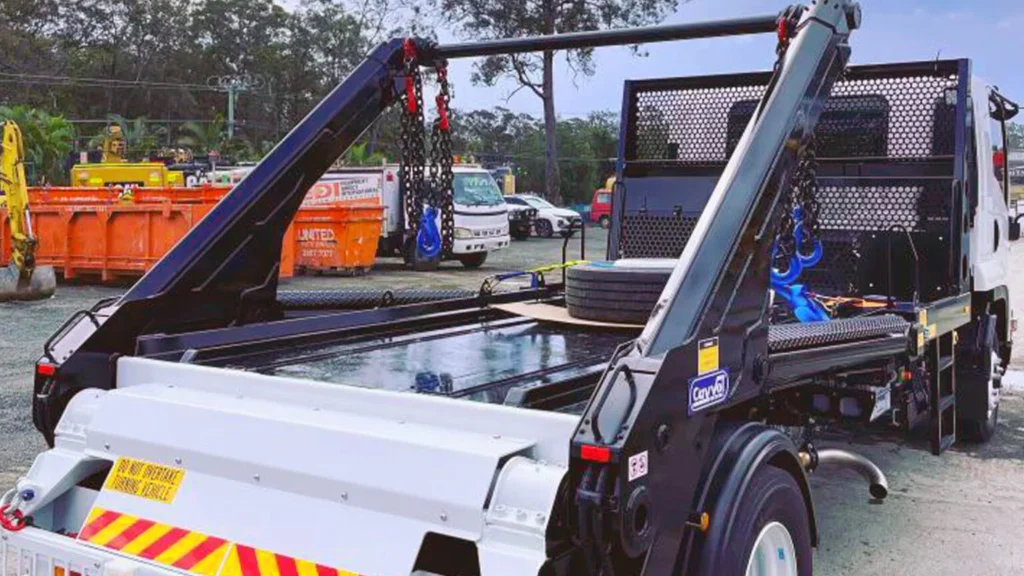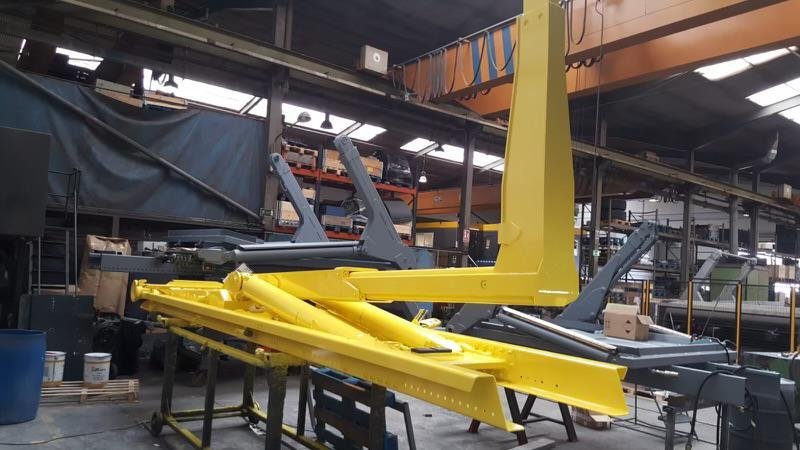When it comes to handling waste, having the right equipment can make a world of difference. Skip loaders are popular choices for many businesses and industries, but how do they stack up against other options?
Let’s take a closer look at skip bin loaders and compare them to other waste-handling equipment to help you decide which is the right choice for you.
Skip Bin Loaders: Versatile and Efficient
Skip bin loaders are versatile machines designed to lift and transport skip bins filled with waste materials. They feature hydraulic arms or booms that can pick up and deposit skip bins onto trucks for transportation.
Skip bin loaders come in various sizes and configurations to suit different needs, from small-scale projects to large construction sites.
Pros of Skip Loaders
Versatility: Skip Bin loaders can handle a wide range of waste materials, including construction debris, demolition waste, and general refuse.
Efficiency: With their hydraulic lifting mechanisms, skip loaders can quickly load and transport skip bins, saving time and labor costs.
Manoeuvrability: Skip bin loaders are typically compact and agile, making them suitable for navigating tight spaces and crowded job sites.
Cost-effectiveness: While skip loaders require upfront investment, they can offer long-term cost savings through improved efficiency and productivity.

Other Waste Handling Equipment: Consider Your Options
In addition to skip loaders, there are several other types of waste-handling equipment available on the market. Let’s compare skip loaders to some of the most common alternatives:
Front-end Loaders
Front-end loaders, also known as wheel loaders, are large machines equipped with buckets or scoops attached to the front. They are commonly used for loading and transporting bulk materials such as soil, gravel, and debris.
Comparison
Front-end loaders are powerful and efficient for handling large volumes of waste.
However, they may not be as suitable for handling skip bins or manoeuvring in tight spaces compared to skip bin loaders.
Dump Trucks
Dump trucks are heavy-duty vehicles equipped with hydraulic lifting mechanisms that allow them to tip their cargo bed for unloading. They are commonly used for transporting loose materials, including waste and construction debris.
Comparison
Dump trucks are excellent for hauling large quantities of loose waste over long distances.
However, they may not offer the same level of flexibility and efficiency for loading and unloading skip bins as skip bin loaders.

Roll-off Trucks
Roll-off trucks are specialized vehicles equipped with a hydraulically operated hook and winch system for loading and unloading roll-off containers. They are commonly used in construction, demolition, and waste management industries.
Comparison
Roll-off trucks are ideal for transporting roll-off containers, which are similar to skip bins.
However, they may be less manoeuvrable and efficient for handling smaller skip bins or navigating congested job sites compared to skip loaders.
Choosing the Right Equipment for You
Ultimately, the choice between skip bin loaders and other waste-handling equipment depends on your specific needs, preferences, and budget. If you require a versatile and efficient solution for loading and transporting skip bins, a skip bin loader may be the ideal choice.
However, if you need to handle large volumes of loose waste or require specialized equipment for roll-off containers, other options such as front-end loaders, dump trucks, or roll-off trucks may be more suitable.
Before making a decision, consider factors such as the type and volume of waste you need to handle, the available space and accessibility of your job site, and your budget constraints.
Additionally, don’t hesitate to consult with waste management professionals or equipment suppliers to get expert advice and recommendations tailored to your specific needs.
In conclusion, both skip bin loaders and other waste-handling equipment offer unique advantages and capabilities.
By carefully comparing your options and considering your specific requirements, you can choose the right equipment to optimize your waste-handling operations and improve efficiency and productivity.
